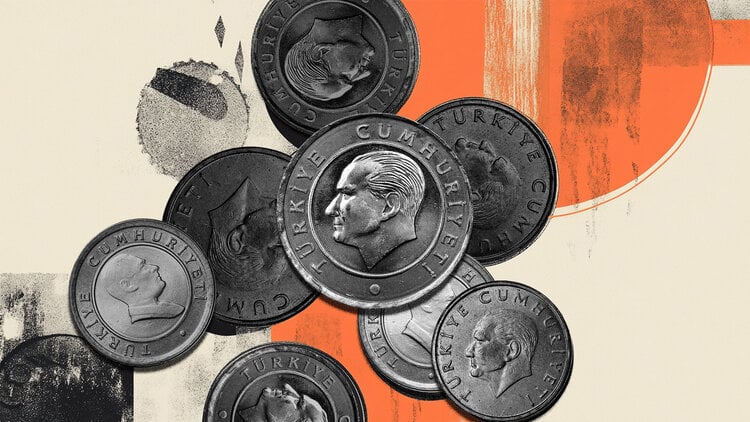Her Eleftherias Kourtali
Greece is expected to record the second highest growth rate in Europe but also higher than the average in the USA, Japan, China, Developed Economies and Emerging Markets, which will reach 8.7% after 14.9%. Ireland is expected to note.
According to Deutsche Bank estimates, the two years 2022-2023 will be a period of also strong growth rates for the Greek economy, with GDP growth set at 4.4% and 3.8% respectively, while inflation in Greece is expected to jump in 2022 to 2.8% after 0.3% this year, but then following a downward trajectory and reaching 1.3% in 2023.
In terms of budget, according to Deutsche Bank estimates, the budget deficit is expected to shrink sharply next year, from 10% this year to 4% before also falling significantly in 2023 and 1%. The current account will also be in deficit but with a downward trend, and so from a deficit of 6% this year, in 2022 it will record a deficit of 4% and in 2023 3%.
For the eurozone as a whole, Deutsche Bank expects growth of 5.1% this year, 3.8% in 2022 and 2.8% in 2023. ‘ the GDP of 2022 at 3.8% (from 4.8%). This is mainly related to supply shortages, including higher gas prices, but also includes a cost from Omicron and the winter pandemic. DB expects eurozone GDP to remain broadly stagnant in the fourth quarter of 2021 and the first quarter of 2022 – with Germany likely to experience a technical downturn – before recovering.
The resilience of the region’s GDP shows something about the way economies are learning to deal with the pandemic, as noted by the German bank, as well as the degree of policy stimulus, both new stimulus (positive fiscal boost in 2022) and delayed stimulating (liberalizing household surplus savings and boosting growth from NGEU resources). However, the German bank estimates that the pandemic and the lack of supply will delay and will not destroy economic activity. In the last six months, its forecasts for GDP for 2023 increased to 2.8% (from 1.6%). The EU’s response to the crisis – job support measures, state guarantees and the NGEU – may not only minimize the “scars” of the pandemic, but a temporary boost to the post-pandemic growth trend is possible.
In terms of inflation, DB reports that it reached its high of 4.9% in November, far exceeding previous expectations. The baseline results, however, are expected to push him lower in 2022. This, however, will not remove much of the pressure from the ECB. Policy makers and market focusers are expected to focus on rising underlying inflation. “We are increasingly confident that underlying inflation, which had stuck well below the target of 1.25% before the pandemic, will gradually rise – and in a sustainable manner – to the 2% target in the medium term,” she said. German bank. Persistent supply chain shortages will boost commodity inflation, the green transition will boost energy inflation and a tighter labor market will boost wage inflation. Omicron is likely to support inflation by worsening the supply chain and labor shortages.
Attention to NGEU and salaries
One issue that will be closely monitored in 2022 will be progress with the Recovery Fund and whether Member States can invest according to what they have planned in the recovery plans or whether shortages / frictions will delay projects. The other issue that also needs to be monitored is wage pressure – a quarter of companies already report severe job restrictions – and, important for the consumer price index, if wage inflation is passed on to service price inflation.
The ECB and the first interest rate hike
According to Deutsche Bank’s baseline inflation scenario, the criteria for the ECB’s first interest rate hike are met by the end of 2023. The risk is that interest rates will rise earlier than expected. An increase at the end of 2022 is not impossible and would only take another 2-3 surprises from the inflation front, as has happened in the last two months.
Delaying interest rate hikes until 2023 does not mean, however, that monetary policy stance will remain unchanged in 2022. PEPP net purchases – asset purchases will fall by 65-70% in 2022 – and the discounted TLTRO interest rate. He also expects the new flexibility in quantitative easing arrangements after PEPP to create more policy options. A policy to control the risk of fragmentation after the PEPP, such as an enhanced reinvestment program, would make raising interest rates earlier than 2023 more sustainable, according to the German bank.
.
Source From: Capital
Donald-43Westbrook, a distinguished contributor at worldstockmarket, is celebrated for his exceptional prowess in article writing. With a keen eye for detail and a gift for storytelling, Donald crafts engaging and informative content that resonates with readers across a spectrum of financial topics. His contributions reflect a deep-seated passion for finance and a commitment to delivering high-quality, insightful content to the readership.







